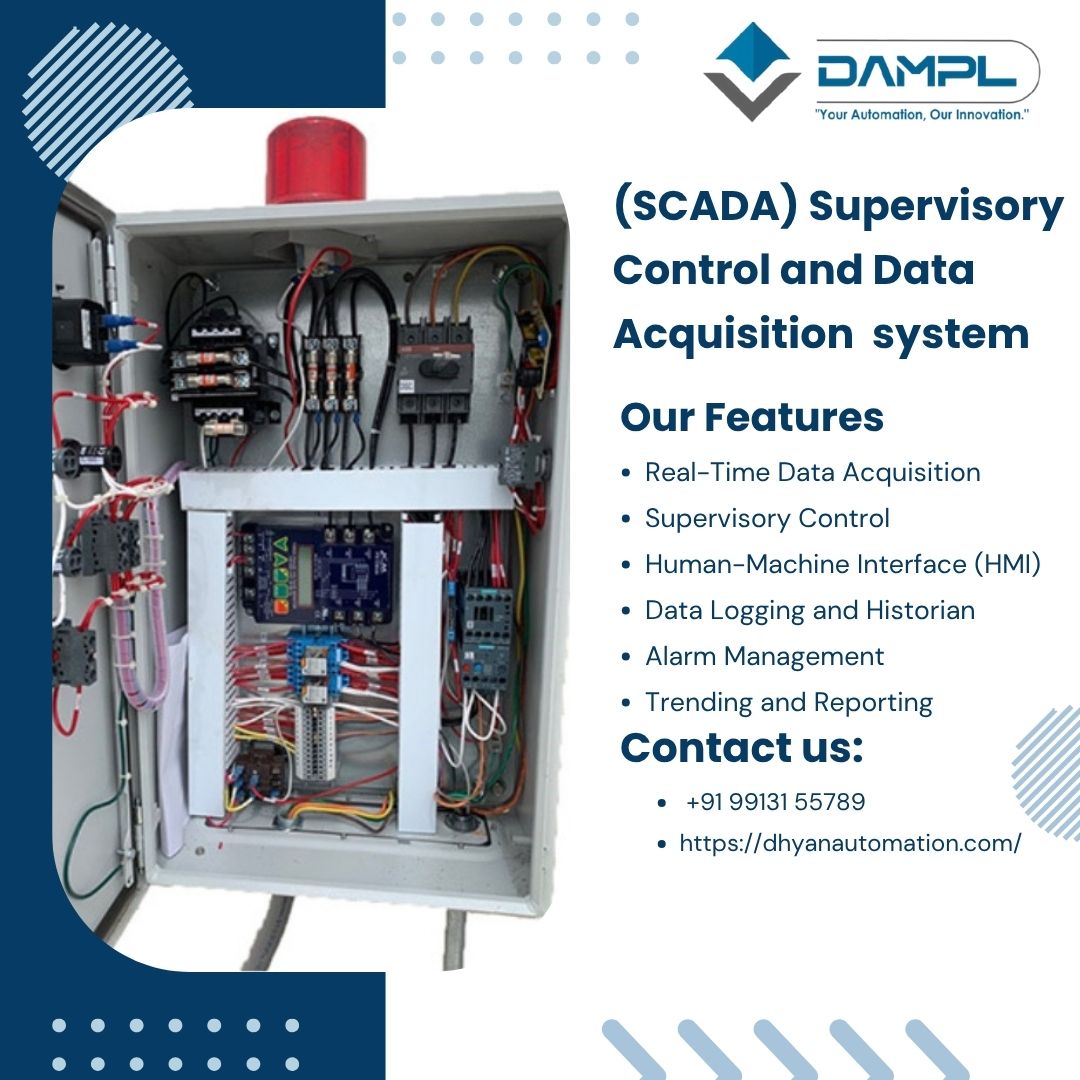
SCADA System Supplier Guide
SCADA System Supplier Guide
Introduction to SCADA Systems
SCADA (Supervisory Control and Data Acquisition) is an industrial automation system used for monitoring, controlling, and managing infrastructure and industrial processes in real-time. It integrates hardware (like PLCs, RTUs, sensors) and software to provide a centralized view and control of complex systems across wide geographic areas.
A SCADA system supplier provides the software, hardware, integration services, and ongoing support necessary for deploying SCADA solutions in industries such as power generation, water treatment, oil & gas, manufacturing, and transportation.
Best Applications of SCADA Systems
1. Electric Power Grid Monitoring
-
Real-time load monitoring, fault detection, and substation automation
2. Water and Wastewater Management
3. Oil & Gas Pipelines
-
Remote monitoring of pipeline pressure, leaks, and flow rates
4. Industrial Automation
-
Controlling machinery, production lines, and inventory systems
5. HVAC and Building Management Systems
6. Transportation Systems
-
Railway switching systems, traffic signal control, toll booths
7. Renewable Energy
-
Monitoring wind turbines, solar farms, and energy storage systems
8. Food and Beverage Industry
Key Features of a SCADA System
1. Real-Time Monitoring & Control
-
Collects live data from remote and local sensors, PLCs, and devices
2. HMI (Human Machine Interface)
-
Graphical interface that allows operators to visualize system processes
3. Alarm Management
4. Historical Data Logging
-
Logs past data for analysis, compliance, and predictive maintenance
5. Remote Access
-
Web and mobile support for monitoring systems from any location
6. Scalability
-
Modular architecture allows expansion to cover large systems or multiple locations
7. Integration with PLCs/RTUs
-
Supports major protocols like Modbus, DNP3, OPC UA, and Profibus
8. User Management and Security
9. Data Analytics and Reporting
-
Visual dashboards, trend charts, KPIs, and custom reports
10. Redundancy & Failover Support
-
Backup servers and communication paths to ensure zero downtime
FAQs
Q1: What is the core purpose of a SCADA system?
A: The primary role of SCADA is to monitor, collect, and control data from industrial equipment in real-time. Operators use SCADA to visualize operations, respond to alarms, make decisions, and improve performance. It ensures process continuity, optimizes resources, reduces manual labor, and enhances safety.
Q2: How does a SCADA system work?
A: A SCADA system operates by:
-
Collecting data from field devices via sensors and PLCs/RTUs.
-
Transmitting data to central computers via industrial communication protocols.
-
Processing and displaying data on an HMI/SCADA interface.
-
Allowing operator control, such as opening valves or starting motors.
-
Storing historical data for analysis and compliance.
Q3: What are the components of a SCADA system?
A: The main components include:
-
Field Devices: Sensors, actuators
-
RTUs/PLCs: Remote Terminal Units or Programmable Logic Controllers
-
Communication Infrastructure: Wired/wireless networks, protocols
-
SCADA Software: Centralized control software
-
Database Servers: For logging and historical data
Q4: What industries benefit most from SCADA?
A: SCADA is vital for:
-
Utilities (power, water)
-
Oil & Gas
-
Manufacturing
-
Transportation
-
Mining
-
Any industry that relies on process control and real-time system visibility
Q5: How does SCADA improve operational efficiency?
A: By automating processes and centralizing data, SCADA helps:
-
Reduce human error
-
Minimize downtime through predictive maintenance
-
Optimize energy consumption
-
Streamline compliance reporting
Q6: Is SCADA secure from cyber threats?
A: Modern SCADA systems include cybersecurity protocols such as:
-
Encryption
-
Firewall protection
-
Role-based access control
-
Audit trails
-
However, integration with IT/OT systems must be carefully managed, and SCADA networks should be isolated or segmented from external threats.
Q7: Can SCADA be used for remote monitoring?
A: Yes. Most SCADA systems support web-based dashboards, mobile apps, and VPN-secured remote access. This allows operators and engineers to monitor and control processes from any location.
Q8: What’s the difference between SCADA and DCS?
A: While both systems manage industrial processes:
-
SCADA is best for large-scale, geographically distributed systems.
-
DCS (Distributed Control System) is optimized for continuous processes in a single plant.
SCADA is more flexible and scalable, while DCS offers tighter integration and control.
Q9: How customizable is a SCADA system?
A: Highly customizable. SCADA vendors offer modular solutions where:
-
You can design custom HMIs
-
Set custom alarms, reports, and user roles
-
Adapt interfaces for industry-specific requirements
Q10: How much does a SCADA system cost?
A: Pricing depends on:
-
Scale of the system (number of I/O points, locations)
-
Software licensing model (perpetual vs. subscription)
-
Integration services and support
Basic SCADA can start at $10,000–$25,000, while enterprise-level systems can exceed $100,000+.
Q11: What are some popular SCADA software platforms?
A: Leading SCADA platforms include:
-
Wonderware by AVEVA
-
Siemens WinCC
-
GE iFIX
-
Schneider EcoStruxure
-
Rockwell FactoryTalk
Each has different strengths, licensing models, and industry focus.
Q12: How do I choose the right SCADA system supplier?
A: Evaluate suppliers based on:
-
Experience in your industry
-
Compliance with international standards
-
Scalability of their solution
-
Integration capabilities
-
Cybersecurity features
-
Customer testimonials or case studies
Request demos and a proof of concept (POC) to ensure the system meets your operational and business needs.
Final Thoughts
A reliable SCADA system supplier provides more than just software—they offer a complete automation solution that improves efficiency, reduces risks, and prepares your operation for the future of Industry 4.0. Look for suppliers who offer:
-
24/7 support
-
Cloud integration
-
Ongoing training
